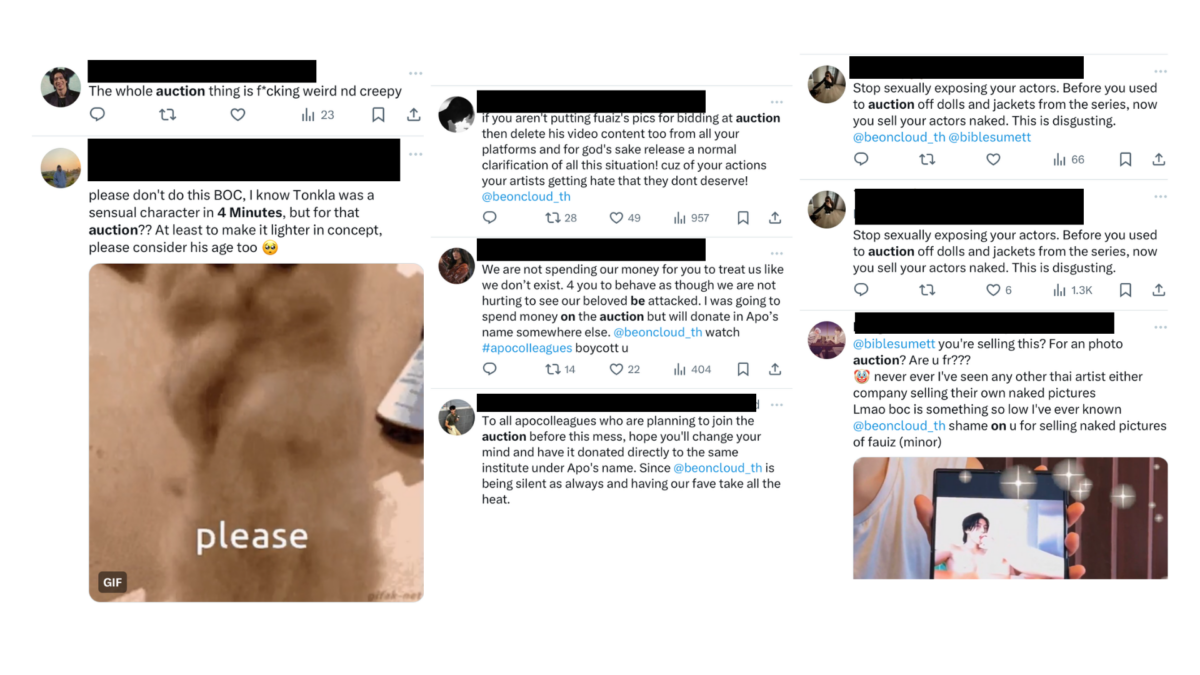In the entertainment industry, various actors are present, similar to the different genres of music, films, theater, and other entertainment, which encapsulates the diversity of art in all forms.
Entertainment diversity is evident in various artistic mediums, including theater, film, and visual art. These different genres enable entertainment to delve into human emotions, cultural narratives, and societal challenges, making it globally relevant and effective.
However, these artistic manifestations could get out of hand.
The film industry was known for using actors—especially women—as sex objects to uphold its glamorous image during Hollywood’s Golden Age (1920s–1950s). Strong male executives ran the studio system that ruled Hollywood then, frequently manipulating and pressuring female actors. This concept was adapted for other entertainment mediums, such as music and fashion, rather than only movies.
As American cinema’s influence expanded globally, the early 20th-century entertainment industry responded to Hollywood’s use of sex symbols by often emulating its approach. Hollywood’s focus on glamour, beauty, and sexuality became a worldwide cultural export, shaping the development of film industries in other countries.
In the Philippine context, celebrities often feature in alcohol calendar ads, showcasing their toned bodies. The objectification of these models not only diminishes their talents but also reduces their work to mere physical appeal, a trend that can be particularly troubling in a conservative society.
While there’s nothing inherently wrong with models displaying their bodies as part of their profession, it becomes concerning when they are viewed solely as ‘sex symbols.’ To ensure that respect for the individual is maintained despite the promotional nature of these images, it’s crucial for companies and the general public to be aware of how these portrayals influence social views.
Using Actors for ‘Auction’
Recently, the Thai entertainment firm “Be On Cloud,” best known for the hit-BL series “KinnPorsche,” held an online auction in which fans could buy pictures of their performers in seductive poses on the management social media networks.
The auction is for their fan gathering for their sensual, dramatic, sci-fi serial series ‘4 Minutes,’ with all proceeds go to the Institute of HIV Research and Innovation (IHRI) at no extra cost.
Given their dedication to producing authentic art, the company is recognized for creating the R-18+ series. However, this time, they oversexualized their characters, particularly Thanawat Shinawatra, also known as “Fuaiz,” a young actor who had just turned 18.
Supporters of the actors and the company voiced their worries as well, claiming that they sexualize their performers and only utilize the ‘auction’ to get money and notoriety.

Even though the auction is being held to support a worthy cause, there are undoubtedly better ways to aid the public and better use the performers’ abilities.
Such behavior puts performers under pressure to adopt roles that accentuate their sexual appeal and adhere to unattainable beauty standards. Although this can increase their level of renown, it can also cause mental and psychological trauma, which shortens an actor’s career and lowers their value as a professional.
The sexualization of performers fosters a hostile atmosphere that is conducive to exploitation and harassment. Especially in 2023 when the firm dealt with a similar case of sexual harassment involving the former actors “Build Jakapan” and Kinnporsche author “Poi Patchayamon.”
This sexualization is a perfect illustration of how power disparities are taken advantage of, as young performers like Fuaiz are driven to make concessions to further their professional careers.
Although the actor hasn’t commented on the situation, this relationship generally can cause long-term stress and hinder creative development because actors are frequently cast in parts that limit their ability to express their full creative potential.
The entertainment sector ought to bear the duty of preventing the normalization of actors’ sexualization, especially in shows meant for mass audiences. Actors who choose to play sexualized roles are not necessarily bad.
Still, it’s essential to understand that specific genres and spaces are better suited for this material than others.
The industry should be mindful of boundaries and ensure that content aligns with the expectations and sensitivities of its intended viewers. Respecting the actors’ choices and the audience’s needs fosters a healthier, more respectful environment for everyone involved.
Let’s honor everyone’s hustle!
Other POP! stories you might like:
Social media users decry viral ‘thanksgiving post’ from teacher deemed as ‘groomer’
This Bishop’s reaction after learning that Pope Francis named him a cardinal is so real
Influencer Jen Barangan apologizes following ‘concert etiquette’ issue
Arshie Larga reminds fellow content creators about wielding influence during election season
KAIA gets confidently poppy with catchy new single ‘Walang Biruan’

